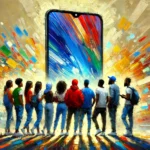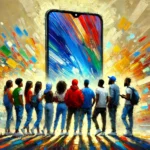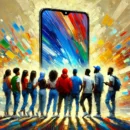Here’s what you do with mistakes: own up to them
“The reason we did Maps is we looked at this, and we said, “What does the customer want? What would be great for the customer?” We wanted to provide the customer turn-by-turn directions. We wanted to provide the customer voice integration. We wanted to provide the customer flyover. And so we had a list of things that we thought would be a great customer experience, and we couldn’t do it any other way than to do it ourselves.
We set on a course some years ago and began to do that. So it wasn’t a matter of saying, “Strategically it’s important that we not work with company X.” We set out to give the customer something to provide a better experience. And the truth is it didn’t live up to our expectations. We screwed up…that’s the fact”
TIM COOK, interviewed in BLOOMBERG BUSINESSWEEK (6 December, 2012)
Tim Cook, CEO of Apple, the world’s most successful company of the recent era, gave his first in-depth interview recently. It was fascinating stuff.
A few weeks ago on this page, I laid into the fiasco that is Apple Maps. In its current mobile operating system, Apple forced its customers to adopt a new mapping product. Which turned out to be terrible. It was a rare misstep for Apple, usually a freakishly perfectionist company.
Here’s what I wrote: “Apple Maps was not just bad, it was embarrassingly bad. Across the world, examples of egregious mapping errors poured in. In Nairobi, after trying out the application for the first time in a taxi and noting that I was apparently on Argwings KHOONEK road, heading for OTANGA road, I realized I would not be relying on Apple Maps in the immediate future.”
But look at the excerpt from the interview. Tim Cook comes clean. He does not pass the buck or deflect the blame. He doesn’t deny the problem. He holds up his hands and says: “We screwed up. That’s the fact.”
I’m applauding. Are you?
I love the candour. It is delightful when a CEO has the nerve and confidence to do this. Few do, sadly. Most will deploy weasel words and inane jargon rather than say sorry, in plain English.
In Kenya, the problem is even worse. Here, some of our leading brands are led by ‘jogoo’ big men who rather die than say sorry or admit fault. Hence we see the sad spectacle of companies that are visibly, obviously and painfully failing their customers. But will never admit it. They prefer to hide behind bland and generic apologies; insincere and hollow promises to put things right; or outright denials that a problem exists in the first place. Some are actively training their customer-facing staff to lie, rather than fix the underlying problem.
This is the equivalent of hiding under a table with your eyes tightly shut and your fingers rammed into your ears, while the building is on fire.
This is lamentable. It is far, far better to come clean and admit the truth. It does your company’s brand, and your personal leadership brand, way more good to be seen as trustworthy and authentic, rather than one that wriggles around looking for a way out.
Take this to heart in 2013. Don’t try to suppress or deny bad news. Embrace it, and make amends. Don’t dodge complaints; use them to fix the problem that you have. This will be the making, not the breaking, of your brand. Brands and leaders that can’t be trusted are only marking time; their demise is assured.
Meanwhile, Mr Cook says about Apple Maps: “We’ve got a huge plan to make it even better. It will get better and better over time.”
I believe him. But I guess I’ll believe it more when my phone stops telling me I’m on KENIATTA avenue…

Buy Sunny Bindra's book
UP & AHEAD
here »
Popular Posts
- What is a nation?June 30, 2024
- To be a great leader, think like a farmerJuly 21, 2024
- Don’t be surprised by surprisesJuly 14, 2024
- It takes mavericks to change the gameJuly 7, 2024
- Why we should all be activistsJune 16, 2024















